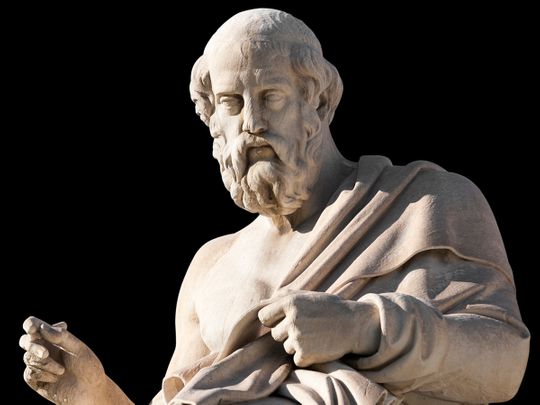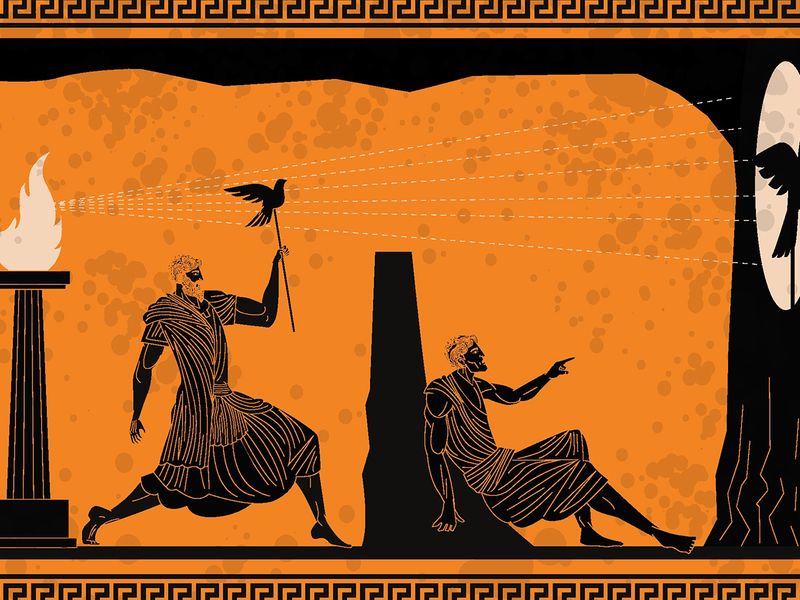
By definition, Utopia is “an imaginary place in which … social conditions are perfect” as per Merriam Webster’s online dictionary. And sure enough, when we trace the origins of the word, we find that it comes from Greek ‘ou’ to mean ‘not’ and ‘topos’ to mean ‘place’ – a non-existent concept.
Click start to play today’s Crossword to discover more of utopian visions in books and cinema.
Crafting a utopian vision is always done in hopes that we might land with a fool-proof formula to happiness and solutions to the world’s problems. Greek philosopher Plato was no different in this attempt in his monumental work ‘The Republic’ written over 2,000 years ago, becoming the basis of Western philosophy and politics. Except, his vision of Utopia might raise the hackles of most modern societies today.

No artists
For one, Plato argued that a perfect city should abolish any form of mimetic art. The Athenian is famously known for shunning works of artists because they only ever produce imitations. In a sense, he’s not wrong – when we paint, we base it on forms of art we have already seen, which are in turn imitations of objects and people. Multiple copies of copies can water down the truth of the original form.
No poets
While artists have no place in Plato’s Utopia, poets don’t make the mark, either. He divides the society into strict classes with the topmost or ‘gold-souled’ citizens being the guardians. And Plato takes their education very seriously, beginning with the censorship of poetry. His argument is that works of literature, in particular those by epic poet Homer, are deceptive and can fan the fires of corruption. The emotive language of written works clearly threatened to upend the virtues of his Utopian city.
Only philosophers fit to rule
It doesn’t end there. Out of the guardians are to come ‘philosopher-kings’, the most just rulers a society can have. Nothing can, of course, trump a philosopher’s insight. He illustrates this using a cave allegory: people are bound to a sunless cave, where a fire behind them casts shadows of ‘real’ objects on the walls. Because of their limited vision, this is all they or rather we ever see, living in ignorance and assuming the shadowed reality is all that there is.
But philosophers are able to see beyond the shadows and discern what is false and true. Scholars point out how Plato’s statements are rife with contradictions, because is an allegory not an imitation used to describe a theory?
Would you live in Plato’s utopian society? Play today’s Crossword and tell us at games@gulfnews.com.



